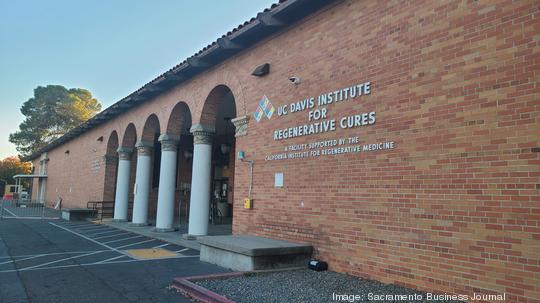
Australian company Telix Pharmaceuticals Ltd. plans to acquire a local imaging pharmaceutical company.
Over the weekend, Telix announced that it will acquire Optimal Tracers from the Sacramento-based Northern California PET Imaging Center.
"Optimal Tracers is an established business with a highly regarded team and impressive client roster. They have built a strong reputation based on their deep technical skills and ability to help clients optimize drug development, production processes and quality control,” Jonathan Barlow, Telix senior vice president of global business development and alliance management said, in a statement. “We are looking forward to welcoming the talented Optimal Tracers team into the Telix family — together harnessing an innovative approach to radiochemistry to further enhance Telix's pipeline and continue support of the Optimal Tracers business."
Optimal Tracers was started in 2012, as a division of the nonprofit Northern California PET Imaging Center.
“This was a small contract manufacturing organization to support our mission at Northern California PET,” center CEO Ruth Tesar told the Business Journal. “It really got the attention of our clients, because they were impressed with the type of work they did locally, and we got to the point where we needed to grow and needed to expand in some areas, and that was not a part of what we do for our mission.”
Telix’s announcement said the price of the planned acquisition was “non-material.” Tesar declined to disclose the purchase price. The deal is projected to close Dec. 31, Tesar said.
When the imaging center opened in 1992, it was the first independent, stand-alone imaging center offering positron emission tomography imaging, which was then an emerging technology.
“Every hospital now has a PET scanner,” Tesar said.
PET scanners work by detecting and compiling a three-dimensional image of the gamma radiation in a patient’s body, which can be used to detect a variety of conditions, including cancer, heart disease and brain disorders. To capture these images, patients are injected with a tracer drug that contains radioactive particles, which are then picked up by the PET scanner.
Optimal Tracers, located at UC Davis Health’s Sacramento campus, makes those tracer drugs. It’s a complicated, precise process. Clients need different drugs depending on what they’re looking for in the scan, and the drugs have a very short half-life. Some have to be used within hours after they’re made.
“We’re making something that takes quite a long time to make, and it has to be used very quickly,” Tesar said. “They have to be very efficient, and very good at what they do to make this happen.”
Optimal Tracers’ five-employee team specializes in serving clients doing clinical trials, including medical researchers and pharmaceutical companies developing new drugs.
The planned acquisition means that Telix could bring more clinical trials to the Sacramento region, since the trials have to occur close to where the tracer drugs are manufactured. Currently, Telix’s only other U.S. presence is in Indianapolis.
“This company will still support clinical research in the region,” Tesar said. “The services that we have, not only will still be provided, but they will be expanded, and they will help us overall.”








